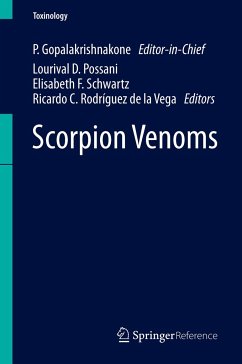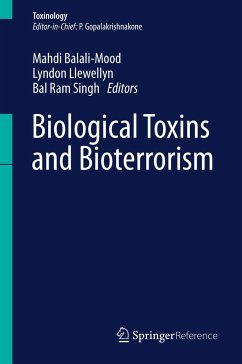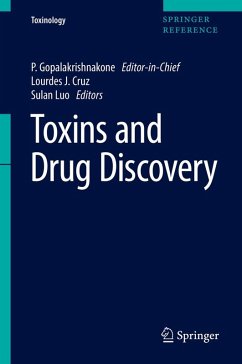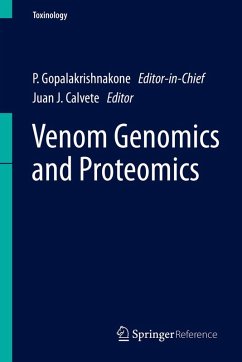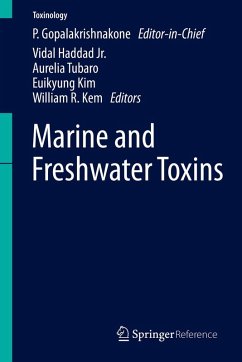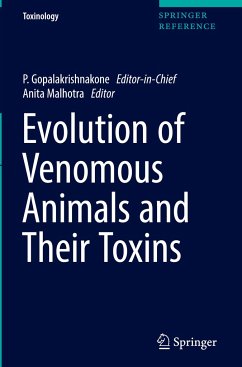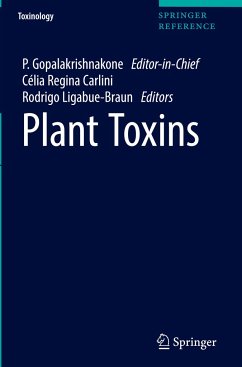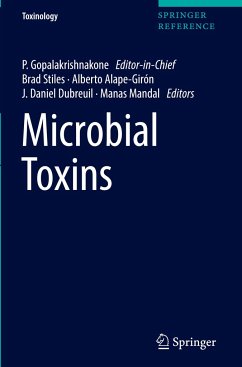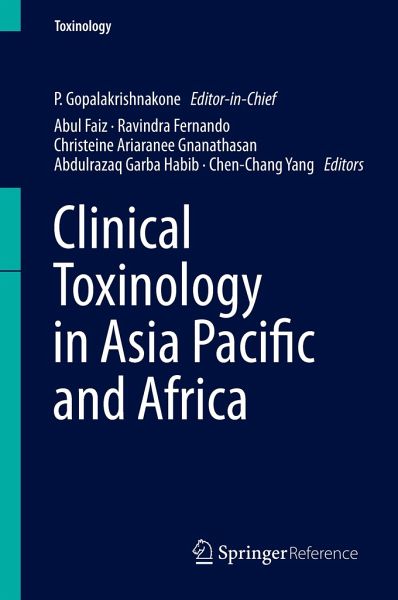
Clinical Toxinology in Asia Pacific and Africa
Versandkostenfrei!
Versandfertig in 6-10 Tagen
303,99 €
inkl. MwSt.

PAYBACK Punkte
152 °P sammeln!
Clinical toxinologic conditions are becoming increasingly frequent, more so than is generally recognized. The conditions comprise of clinical aspects such as the diagnosis, management, and prevention of snakebite envenoming, scorpion sting, mushroom toxins, plant toxins, and other natural toxins. Clinical toxinology also deals with the ecology, epidemiology, regional differences, and varieties of fauna accounting for different envenoming manifestations.This handbook includes 30 chapters addressing various topics on clinical toxinology such as the epidemiology and management of snakebites in di...
Clinical toxinologic conditions are becoming increasingly frequent, more so than is generally recognized. The conditions comprise of clinical aspects such as the diagnosis, management, and prevention of snakebite envenoming, scorpion sting, mushroom toxins, plant toxins, and other natural toxins. Clinical toxinology also deals with the ecology, epidemiology, regional differences, and varieties of fauna accounting for different envenoming manifestations.
This handbook includes 30 chapters addressing various topics on clinical toxinology such as the epidemiology and management of snakebites in different Asian and African countries, disability following snakebite, effect of snake venoms on hemostasis, socioeconomic aspects of snakebites, therapeutic application of snake venom, scorpion sting in the Middle East, jellyfish sting, etc. These titles are written by experts currently working in the subspecialty, many of whom have first-hand experience in the relevant research fields. In virtually all the topics, appropriate illustrations are provided to simplify comprehension including tables, figures and pictures.
This reference work on Clinical Toxinology in Asia Pacific and Africa, in the Toxinology handbook series, is designed to keep readers abreast with new knowledge and experience in toxinology regionally and globally. Toxinologists, researchers, scientists, and experts in this field from various working areas considered it necessary to collect all the aspects of clinical toxinology in a single, handy handbook. This can be used by medical students, postgraduate students, general practitioners, specialists in internal medicine, critical care physicians, emergency physicians, and anesthetists worldwide.
This handbook includes 30 chapters addressing various topics on clinical toxinology such as the epidemiology and management of snakebites in different Asian and African countries, disability following snakebite, effect of snake venoms on hemostasis, socioeconomic aspects of snakebites, therapeutic application of snake venom, scorpion sting in the Middle East, jellyfish sting, etc. These titles are written by experts currently working in the subspecialty, many of whom have first-hand experience in the relevant research fields. In virtually all the topics, appropriate illustrations are provided to simplify comprehension including tables, figures and pictures.
This reference work on Clinical Toxinology in Asia Pacific and Africa, in the Toxinology handbook series, is designed to keep readers abreast with new knowledge and experience in toxinology regionally and globally. Toxinologists, researchers, scientists, and experts in this field from various working areas considered it necessary to collect all the aspects of clinical toxinology in a single, handy handbook. This can be used by medical students, postgraduate students, general practitioners, specialists in internal medicine, critical care physicians, emergency physicians, and anesthetists worldwide.




